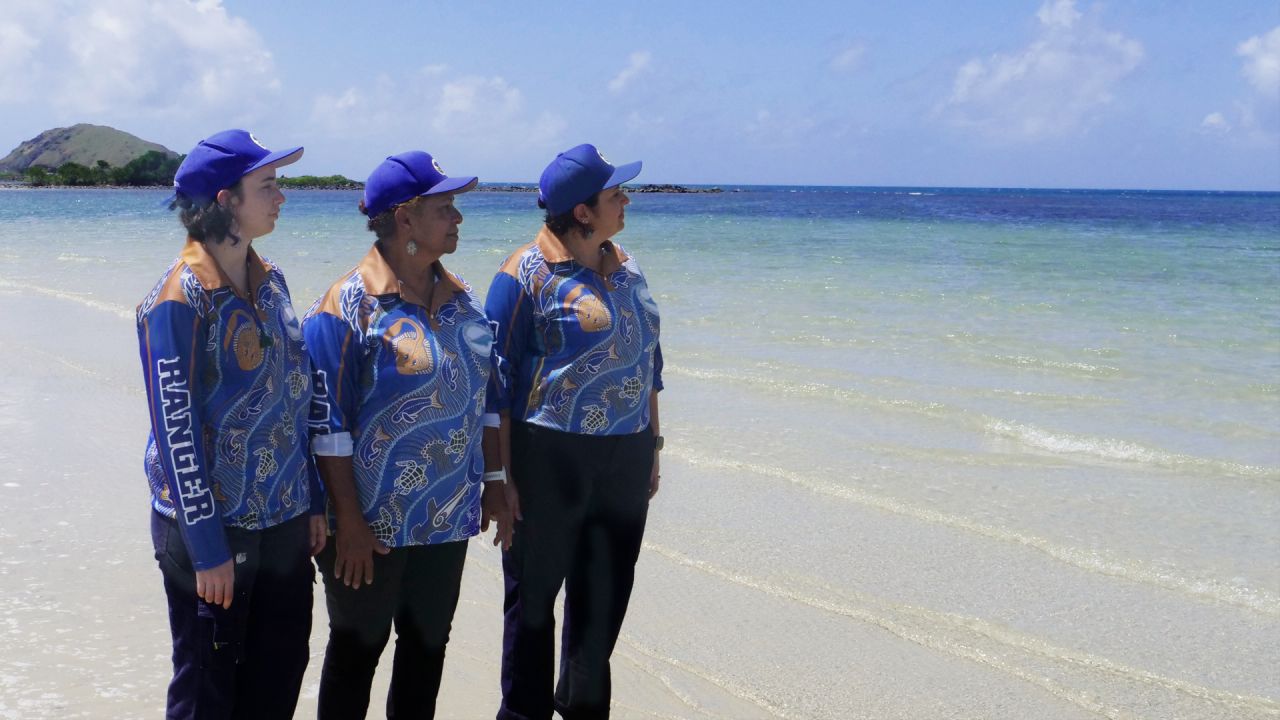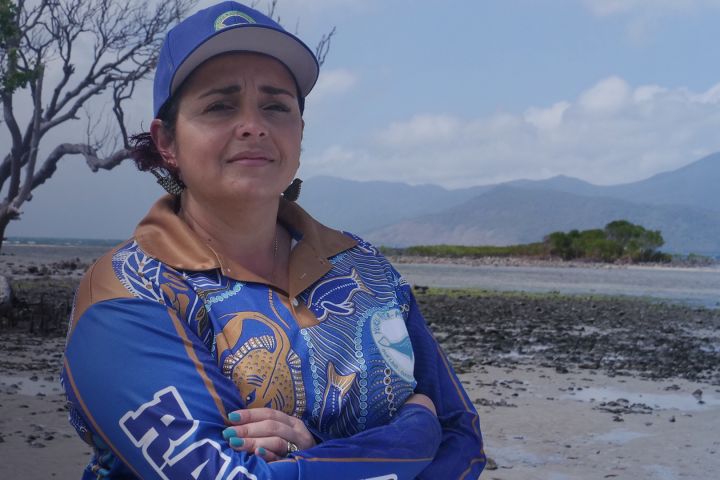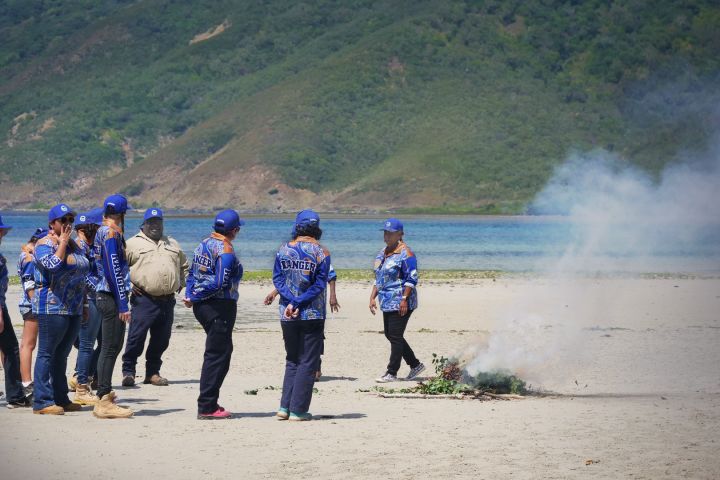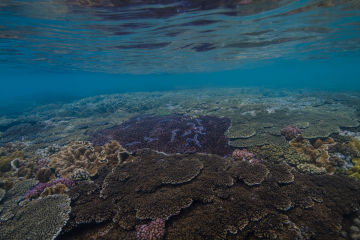Media Release ·
Queensland women’s Indigenous ranger program wins £1 million Earthshot Prize

An inspiring women-led program that combines 60,000 years of Indigenous knowledge with digital technologies to protect precious land and sea country including the Great Barrier Reef has been announced the winner of the 2022 Earthshot Prize to Revive our Oceans by HRH Prince William in the second annual Earthshot awards in Boston, USA.
The Great Barrier Reef Foundation’s Traditional Owner Advisory Group Chair and proud Yuku Baja Muliku woman Larissa Hale accepted the prestigious £1 million (AU$1.78m) prize on behalf of the Indigenous women who are leading the charge to build the next generation of female Indigenous rangers with the ancient knowledge, skills and modern conservation tools needed to better protect the Great Barrier Reef.
Larissa Hale, who was the first female Indigenous ranger coordinator in Queensland, said she was thrilled and honoured to see the Queensland Indigenous Women’s Ranger Network recognised on the global platform provided by the Earthshot Prize.
“Winning one of the five 2022 Earthshot Prizes is a gamechanger for our women’s ranger network that exists to protect the Great Barrier Reef and all our vital land and sea country – our home,” Cr Hale said.
“The Queensland Women’s Indigenous Ranger Program is the only First Nations women’s program linking technological solutions and start-up opportunities to environmental outcomes ‘on country’ in Australia.
“Winning this prize means we can grow the number of Indigenous women rangers, plus have 200 girls in an education program, inspiring the next generation of Indigenous rangers.
“Beyond that, our ambition is to reach out to a network of countries around the world to build a global collective helping to repair the planet.
“This would create a global groundswell of First Nations female led conservation programs, the largest effort of its kind on the planet.
“Many people are worried about climate change and the destruction of Nature. This place has always been our home, but today we risk losing it and the unique culture that has existed here for millennia.
“But I believe it isn’t too late to act. We have the power to shift this if we stand up now, work together and take action.
“I’m grateful to the Earthshot Prize for supporting our vision to achieve this.”
Great Barrier Reef Foundation Managing Director Anna Marsden congratulated Councillor Hale and her team on winning the world’s most prestigious environmental prize.
“We are absolutely thrilled for Larissa and her team to win the Revive our Oceans Earthshot Prize – one of five £1 million Earthshot Prizes announced,” Ms Marsden said.
“Our magnificent Great Barrier Reef is under constant threat from the impacts of climate change and other local threats like poor water quality and crown-of-thorns starfish outbreaks.
“The region’s Indigenous rangers are vital to its defence. Their knowledge and the data they have collected already has given us critical insight into one of the most important ecosystems on the planet.
“As custodians of the land, the rangers protect sites of great cultural and spiritual significance, bringing together traditional knowledge passed down from generation to generation and modern tools such as drones to monitor coral changes, bushfires and land degradation.
“Currently only 20% of Indigenous rangers in Queensland are women, so the Earthshot Prize provides an incredible opportunity to grow this vital network to have an even greater impact in conservation in Australia and beyond.”
Launched in 2020 by HRH Prince William and The Royal Foundation, the Earthshot Prize is the world’s most prestigious environmental prize, designed to discover, spotlight and scale ground-breaking solutions to the world’s greatest challenges. The Prize is centred around five goals: protect and restore nature; clean our air; revive our oceans; build a waste-free world; and fix our climate.
The Indigenous Women of the Great Barrier Reef was the only Australian entry amongst the 15 finalists announced across the five categories.






